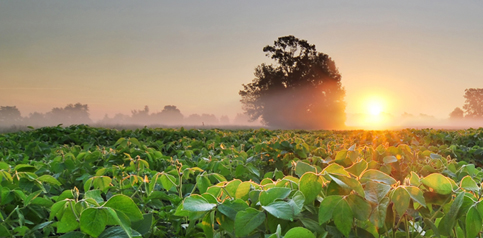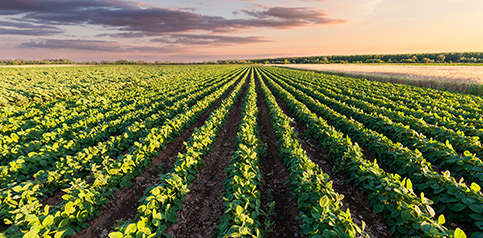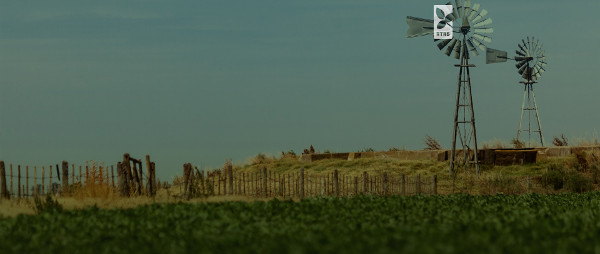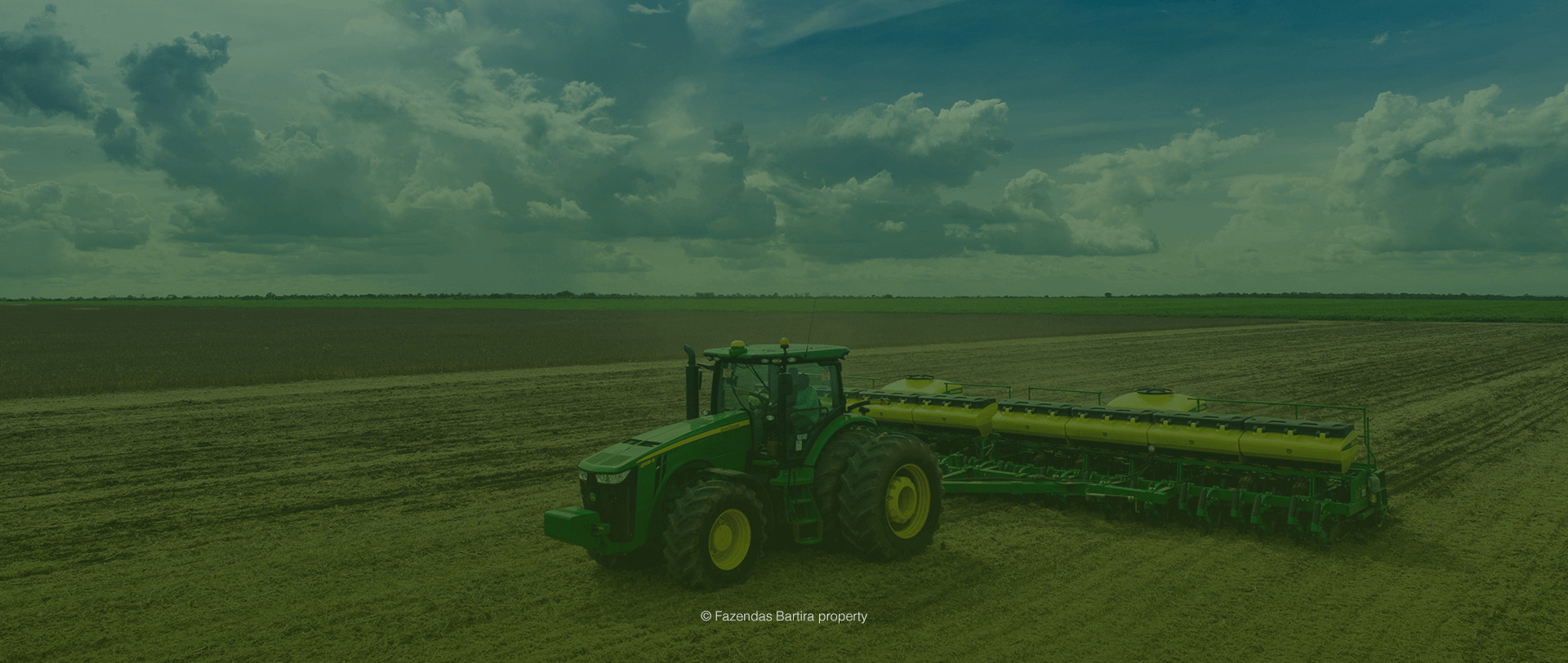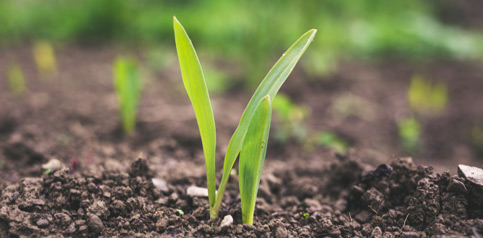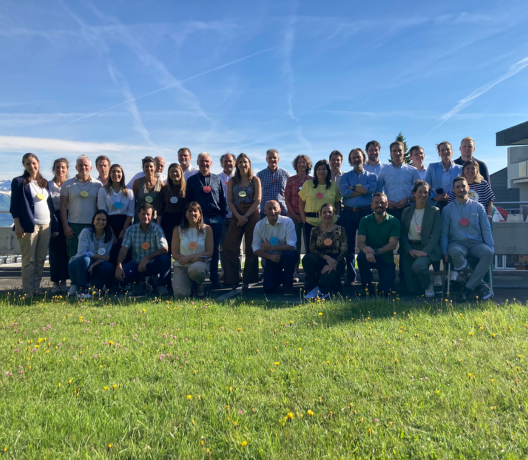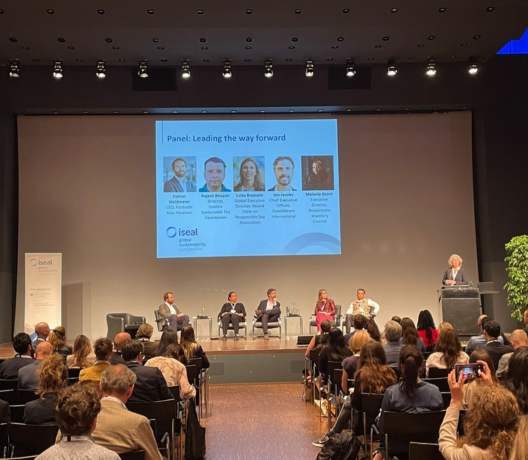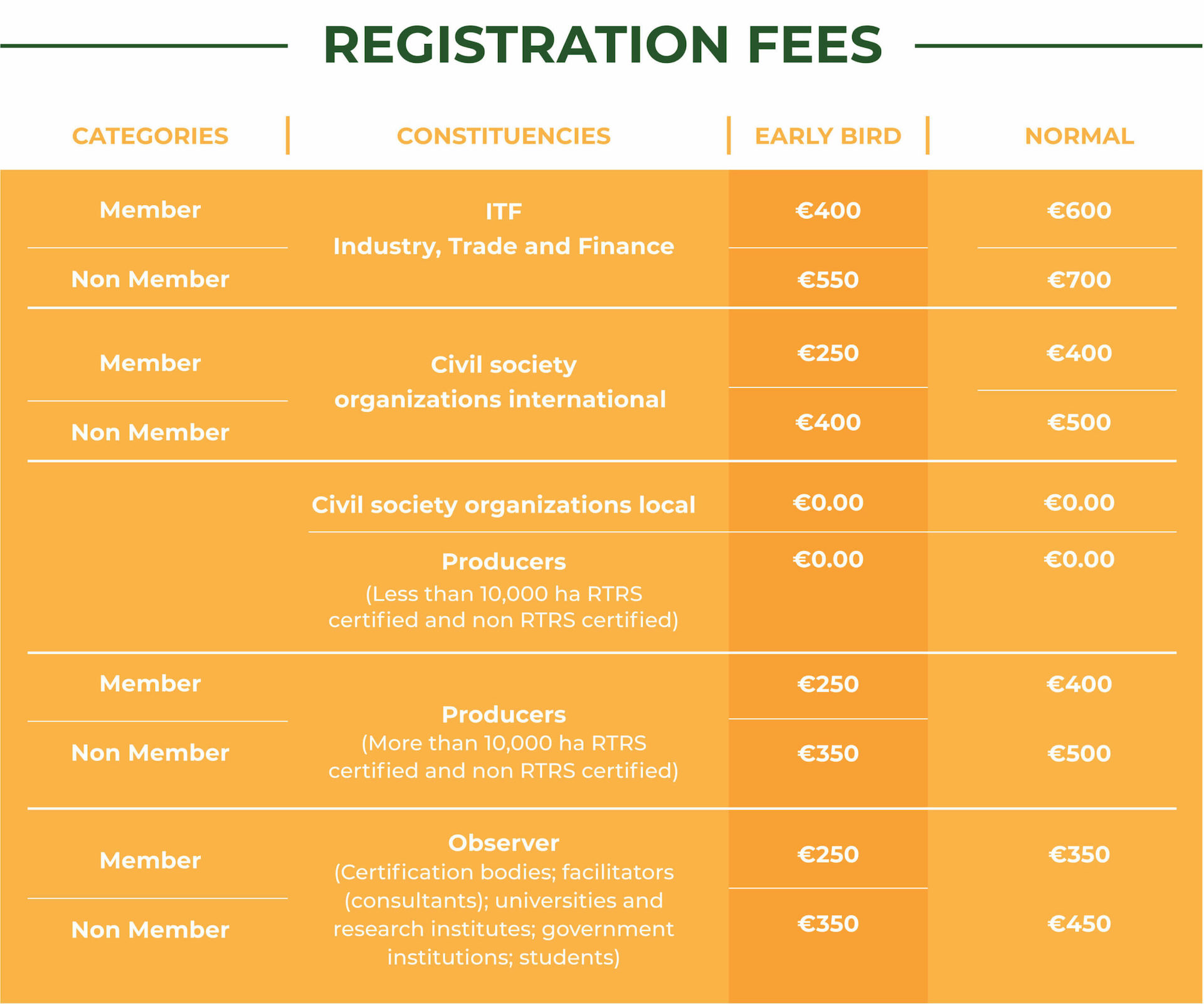RTRS sustainable soy corridor is already a fact in MATOPI
Port of Itaqui terminal, in the state of Maranhão, obtained Chain of Custody certification to meet the demand for RTRS certified soy with the support of Cargill
One of the terminals at Port of Itaqui, in the State of Maranhão, has obtained this month the Chain of Custody certification to meet the demand for RTRS certified soy with the support of Cargill. Port of Itaqui connects the Brazilian grain market with the main international markets; it is considered the third largest port for soybean exports.
For Port of Itaqui President, Ted Lago, incorporating RTRS Chain of Custody by certifying the terminal that serves Cargill is a way to encourage sustainable food supply across the globe. “In this way, we are contributing to strengthening and expanding the volume of certified soy production in our area of influence, guaranteeing food security to the world,” he says.
Over 95% of the total volume sourced in MATOPI (states of Maranhão, Tocantins and Piauí) by Cargill – one of the companies responsible for speeding up this process – is exported through the Port of Itaqui, i.e. more than 900 thousand tons of soybeans. Part of this volume originated by Cargill in that region was already supplied by RTRS certified producers and represented between 8% and 12% of the total exported volume (75 thousand to 110 thousand tons). Now, with RTRS Chain of Custody certification in 47 locations, including, four processing facilities in Barreiras (Bahia), Rio Verde (Goiás), Tres Lagoas (Mato Grosso del Sur) and Uberlandia (Minas Gerais); a transshipment facility in Caipoania (Goiás); three port terminals in Miritituba (Pará), Santarém (Pará) and Itaquí (Maranhão); plus 39 storage facilities in the States of Bahia, Federal District, Goiás, Maranhão, Mato Grosso, Mato Grosso del Sur, Minas Gerais, Rondonia and Tocantins, Cargill generates an impact and an important flow of soy exports in the north of the country, that is prepared to meet the demand for RTRS certified soy via mass balance.
“Cargill`s goal is feeding the world in a safe, responsible and sustainable manner. As we respond to the increased demand for certified soybeans via mass balance from European customers, we are increasingly encouraging sustainable production in our supply chain in Brazil,” says Renata Nogueira, Sustainability Manager at Cargill`s agricultural business in South America. She adds that Cargill’s initiative is part of the company’s efforts to achieve a deforestation-free supply chain, with a high transparency standard, providing benefits for communities and helping producers to prosper. “RTRS certification of our plants and warehouses in the region, together with Port of Itaqui terminal, will allow a significant part of the sustainable soy produced in Brazil to be shipped into the market,” she stresses.
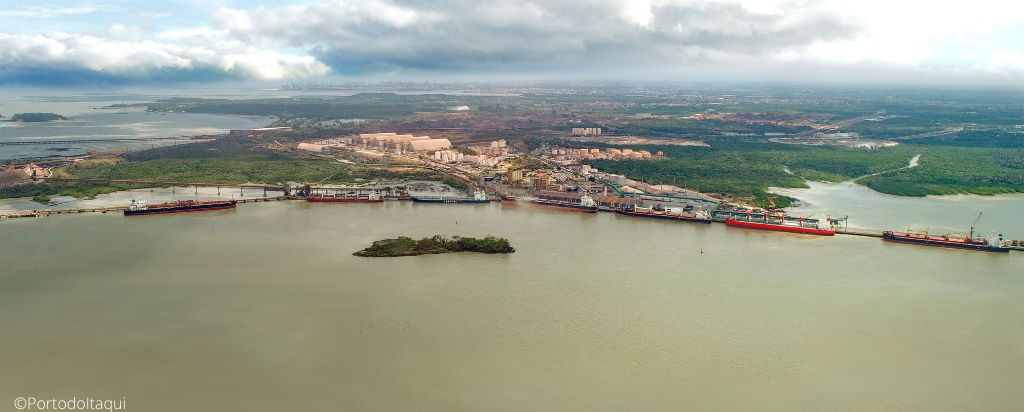

Alliance
RTRS External Consultant in Brazil, Cid Sanches, highlights that “the alliance between RTRS, Port of Itaqui and Cargill has existed for a long time. Now, the wish to have certified soy traded through the port is coming true. While a large production volume in the MATOPI region is RTRS certified, the rest of the chain, warehouses, processors, transshipments and ports, had still to be certified. Today we can announce an important step forward, whereby companies can buy certified physical soy and receive it at Port of Itaqui”.
In 2019, the MATOPI region had more than 270 thousand hectares and more than 1 million tons of RTRS certified soy. This represents 36 RTRS certified producers and more than 184 thousand hectares of preserved native land. Similar numbers are expected for 2020.
Gisela Introvini, Manager of Fundação de Apoio a Pesquisa do Corridor de Exportação Norte – FAPCEN and RTRS Executive Board member, states that certification of soybeans from Port of Itaqui is another milestone in the road to sustainable development of the northern export corridor.
“In collaboration with Embrapa Soja, FAPCEN started to conduct research on cultivars adapted to adverse climate and soil conditions, and now, through RTRS, it is achieving the goal of sustainable production and export of soybeans in the region and creating higher value for the area. We left old paradigms behind, overcoming every challenge faced on food production in the Brazilian Cerrado”, says Gisela.
RTRS Executive Director Marcelo Visconti highlights the collaborative nature of the Association as a global multi-sector platform. We have a space that promotes and drives the decisions of players across the soy value chain, from production to consumption, with the aim to transform supply chains and make them sustainable, and everything happens collaboratively to reach agreements among all the participants,” he says.
“In this particular case, there was, on the one hand, a strong initial vision from MATOPI’s RTRS producers regarding future challenges and opportunities that RTRS certification would bring along. Furthermore, the public-private partnership between Port of Itaqui and Cargill is proof of the synergy between the parties and of the decision to continue doing more in the region”, concludes Visconti.
RTRS Added Value
As provided by RTRS Standard for Responsible Soy Production, certified soy guarantees not only compliance with the highest environmental criteria (including third-party-verified zero deforestation and zero conversion), but also a broad set of social and labor requirements.
With Chain of Custody certification, the RTRS soybean sustainability seal moves along and adds value across the supply chain. RTRS Chain of Custody certification requires organizations to put in place a number of traceability systems in order to keep record of the inventories of soy certified against RTRS Responsible Production, zero deforestation and zero conversion Standard. It can be applied across the entire supply chain and it is mandatory for organizations wishing to receive, process and trade RTRS soy.
The Chain of Custody certification is part of the RTRS Standard for Responsible Soy Production, establishes a number of requirements and guarantees that producers meet the requirements that enable them to sell their certified soy through physical flow.
Indeed, for RTRS certified producers, RTRS Chain of Custody certification of Port of Itaqui gives value and visibility to RTRS certified production and to the region. As of its entry into the Port, trade agreements and shipment of certified production to the world are facilitated.
About Port of Itaqui
Located in the Bay of San Marcos, San Luis (Maranhão), Port of Itaqui, together with the Ponta da Madeira and Porto da Alumar Terminal, make up the Maranhão Port Complex, the largest in Brazil in cargo volume. Its geographical location provides competitive advantages, compared to the ports of the South and Southeast of Brazil, as access time to major foreign markets such as Asia, Europe and North America is reduced by up to five days.
There are eight operational channels with depths ranging from 12 to 19 m, which allows the mooring of deep draft vessels. The access channel has a minimum natural depth of 23 meters, it is about 500 meters wide and 101 km long.
Port of Itaqui connects Brazil with the main international markets (Asia, Europe, North and Central America, Africa, Latin America and Oceania) and in 2019 its cargo movement was shipped to 81 destinations around the world. It is the fifth largest port in Brazil in terms of cargo volume capacity. The main market served by Port of Itaqui is the grain markets, it is the third in soybean exports. For 2020, Puerto de Itaquí is expected to move more than 15 million tons of grains, of which 10 million is soybean.
In 2019, the Maranhão port complex moved, for imports and exports combined, more than 230 million tons of solid bulk (grains and minerals) and liquids (for example, biofuels), which represents 19% of the country’s total volume. Port of Itaqui`s share of that total was 25 million tons, of which 11 million are exported grains and 5.7 million tons of soy. Exports were 13.7 million tons, i.e. 54% of the total movement of the port. The main market served by the Port of Itaqui is the grain market.
With a result-driven management, the public port of Maranhão is ISO 9001: 2015 and 14.001: 2015 certified, which is an evidence of excellence both in quality and environmental management.
Asia is the main destination for soybeans shipped from Port of Itaqui. In 2019, 89% of the total volume was exported to Asia. The remaining 11% of the total volume is exported to Europe. As to corn, that same year 3 million tons were exported from Puerto de Itaquí, 36% bound for Africa (over 1 million tons) and 23% for Europe (almost 700 thousand tons).
The area of influence of Port of Itaqui includes MATOPIBA which consists of the states of Maranhão, Tocantins, Piauí and Bahía. It is the third and last agricultural frontier of the country, past Mato Grosso and Tocantins.
Multimodal efficiency is key to the competitiveness of Port of Itaqui. In addition to the direct rail connection with two railways, the Transnordestina (FTL), running past seven states in the Northeast, from Maranhão to Sergipe, there is an indirect connection with the North-South Railroad (FNS), which joins the EFC in Açailandia, allows the transport of solid, mineral and vegetable bulk, as well as fuel. As to road access, the port has access to routes BR-135 and BR-222 that connect to other federal highways (BR 316, BR 230, BR 226 and BR 010) and provincial highway (MA 230) to the north and south of the country. For more information, go to www.portodoitaqui.ma.gov.br
About Cargill
Cargill’s 155,000 employees, distributed in 70 countries, work to achieve the goal of feeding the world in a safe, responsible and sustainable manner. Every day, it connects farmers with markets, customers with ingredients, and people and animals with the food they need to thrive. It has 155 years of experience, with new technologies and insights to make the company a reliable ally for clients in the food, agriculture, financial and industrial sectors, in more than 125 countries.
In a collaborative spirit, the company is building a stronger and more sustainable future for agriculture. It has been present in Brazil since 1965 and it is one of the largest food industries in the country. With headquarters in São Paulo (SP) and 11 thousand employees, it is present in 17 Brazilian states, through industrial units and offices in 147 municipalities. For more information, go to www.cargill.com and the news center.


